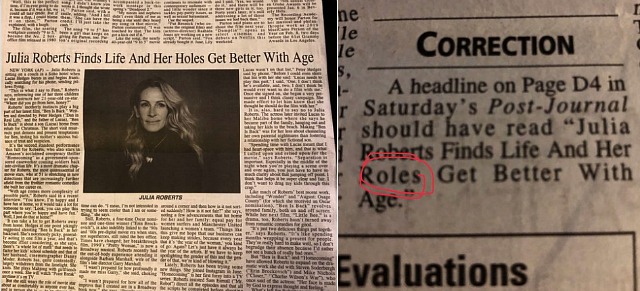The SAG ensemble award is more or less SAG’s idea of a Best Picture trophy, and so the inclusion of Crazy Rich Asians — an oppressively downmarket wealth-porn romcom that is noteworthy for the all-Asian cast aspect (inclusion) and its impressive box-office performance — is a little startling.
The two basic criteria behind this morning’s SAG ensemble award nominations — A Star Is Born, Black Panther, BlacKkKlansman, Bohemian Rhapsody and Crazy Rich Asians — seem to be (a) commercial popularity and/or (b) inclusion.
All five made their mark in terms of box-office and/or representation, but none are anyone’s idea of profoundly great cinema. I felt immediately that A Star Is Born is the best of the five versions (including What Price Hollywood?) but it peaks during the first half, and Black Panther — a very strong film in some respects — doesn’t really kick in until the final hour.
Clearly the old-fashioned idea of quality for quality’s sake has been more or less tossed. SAG actually nominated the somewhat bland John David Washington for his lead performance in BlacKkKlansman….c’mon!
Inclusion and box-office, inclusion and box-office, inclusion and box-office.
Congrats to Ozark‘s Jason Bateman for Outstanding Performance by a Male Actor in a Drama Series nomination — his episode-by-episode performance is perfectly measured and emoted in an adult, low-key, entirely gripping way,
(HE) = special Hollywood Elsewhere approval; (NSM) = not so much.
Outstanding Performance by a Male Actor in a Leading Role:
Christian Bale, Vice / (HE)
Bradley Cooper, A Star Is Born
Rami Malek, Bohemian Rhapsody
Viggo Mortensen, Green Book / (HE)
John David Washington, BlacKkKlansman / (NSM)
Outstanding Performance by a Female Actor in a Leading Role:
Emily Blunt, Mary Poppins Returns
Glenn Close, The Wife / (HE)
Olivia Colman, The Favourite
Lady Gaga, A Star Is Born
Melissa McCarthy, Can You Ever Forgive Me? / (HE)
Outstanding Performance by a Male Actor in a Supporting Role:
Mahershala Ali, Green Book / (HE)
Timothee Chalamet, Beautiful Boy
Adam Driver, BlacKkKlansman
Sam Elliott, A Star Is Born
Richard E. Grant, Can You Ever Forgive Me? / (HE)
Outstanding Performance by a Female Actor in a Supporting Role:
Amy Adams, Vice / (HE)
Emily Blunt, A Quiet Place
Margot Robbie, Mary Queen of Scots (makeup)
Emma Stone, The Favourite
Rachel Weisz, The Favourite
Outstanding Performance by a Cast in a Motion Picture:
A Star Is Born (best of the five Star Is Born flicks, but peaks at halfway mark)
Black Panther (historic superhero film, rooted social metaphor, soars only during final hour)
BlacKkKlansman (police caper flick, GREAT ENDING!) (NSM)
Bohemian Rhapsody (paint by numbers but immensely likable regardless)
Crazy Rich Asians / (NSM)









